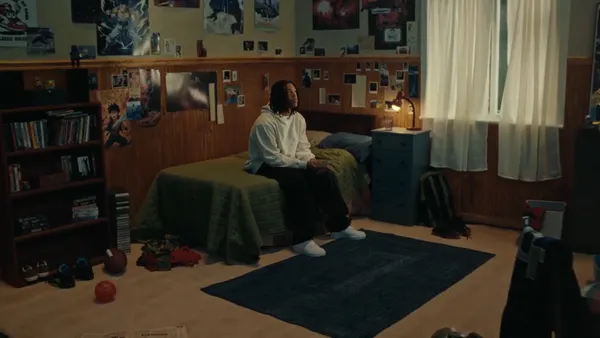Now six years into a shopping spree, Accenture buying another agency to build up its digital marketing services division didn't feel like big news anymore — until it did. In April, the company announced it was acquiring indie darling Droga5, making for the largest purchase in Accenture Interactive's nearly 10-year history and a significant bet on creative know-how that is remarkable for arriving at a time when much of the industry is focusing attention elsewhere.
Estimates have pinned Droga5's price tag at about $475 million, a cost that has raised some eyebrows given that it's for a single agency and one that recently posted its first-ever decline in revenue. Assets gained include more than 500 employees across offices in New York and London and an enviable client list that features brands like HBO and Amazon.
But expense and scale are only one part of the story here, and maybe smaller ones at that. After all, Accenture has bought more than two dozen marketing agencies around the globe since 2013, and there were far larger deals from a financial perspective in 2019.
What separated Droga5 from the pack was prestige: just a few months before getting acquired, it helped put together the year's best Super Bowl spot. Plus, Accenture showed how easily it can use its economic power to close the gap with traditional holding groups, which continue to struggle with growth.
"It really kind of rumbled the foundations of the category because it demonstrated that the last stronghold for the agency [creativity] is acquirable now for the consultancies," Jay Pattisall, principal analyst at Forrester, told Marketing Dive. "It reconfigured the marketplace a little bit."
Economic reality
Like any disruptive deal, Accenture snagging Droga5 generated controversy. What would happen to culture at a place that had proudly waved the independent flag for so long? Could its voice survive under the management of a business that is, in relative terms, new to ad land?
The reality is that Droga5's culture was imperiled anyway. The firm went through three rounds of layoffs in 2018, a grim sign of how big creative ideas, no matter how smart, are falling lower on the marketing ladder as data and tech climb the rungs. This year hasn't boded any better for independent creative ventures: Barton F. Graf, one of the more eccentric shops in the industry, closed its doors in a development many attributed to trends like greater client demand for project-based assignments.
"The fact that an agency like Droga was even open to acquisition is an illustration of the financial and economic pressure that agencies face."

Jay Pattisall
Forrester, principal analyst
Barton F. Graf's fate suggests a potential worst-case scenario Droga5 avoided, and also how Accenture's acquisition is particular to this moment in advertising history and the ways in which value propositions are shifting.
"The fact that an agency like Droga was even open to acquisition is an illustration of the financial and economic pressure that agencies face," Pattisall said.
"Droga as a business was set up at a time where independence was synonymous with creativity," he added. "Today, I think we're seeing that independence means something a little bit different and that integration unlocks a lot of possibilities that it didn't before."
Accenture buying Droga5 could then be a win-win scenario. It not only allows the practice to carry on, but also access new capabilities around data, tech and loyalty — not to mention a network of partners that includes firms like Karmarama and The Monkeys. More significantly, Accenture Interactive's business is booming: its parent organization expects to grow revenue from the unit 20% this year.
"Given the economic reality, being acquired like this is a way for Droga's culture and creativity to thrive," Pattisall said. "Otherwise, it seemed like it was going to continue to languish and have further layoffs."
Point of convergence
From Accenture's point of view, Droga5 helps level the playing field. Agencies once brushed off the consulting model as an indirect competitor, wielding their historical creative expertise as an advantage. That value proposition fades if companies like Accenture can integrate the Droga5's of the world into their offer.
The Droga5 deal acts as a snapshot of the convergence between once siloed approaches to marketing services, where buttoned-up consultancies are going bigger on creativity while agencies dip into the consulting side and areas like data and analytics.
Agencies, many with decades of marketing experience, are actually better positioned culturally to reach that sweet spot where creative and tech become truly integrated, according to Pattisall. But again, culture is only one part of the equation.
"These things take money and time, and the agencies don't necessarily have the luxury of those," Pattisall said. "Accenture Interactive, flush with cash and great client relationships, has a big task of integrating creativity into their business. But I think they're absolutely up to that challenge."


 Read more
Read more









